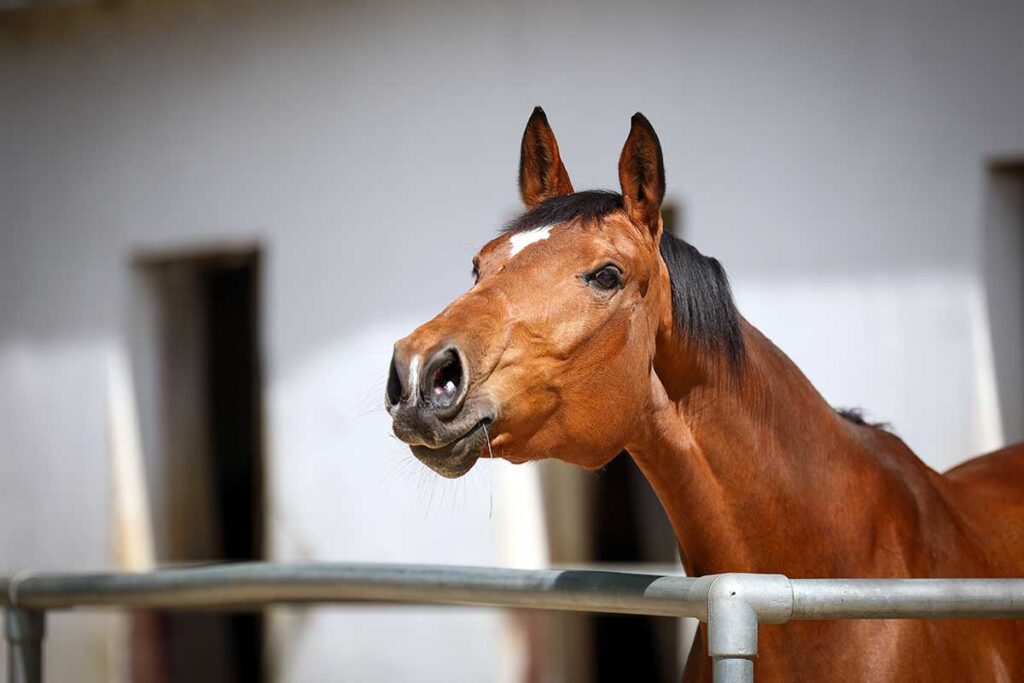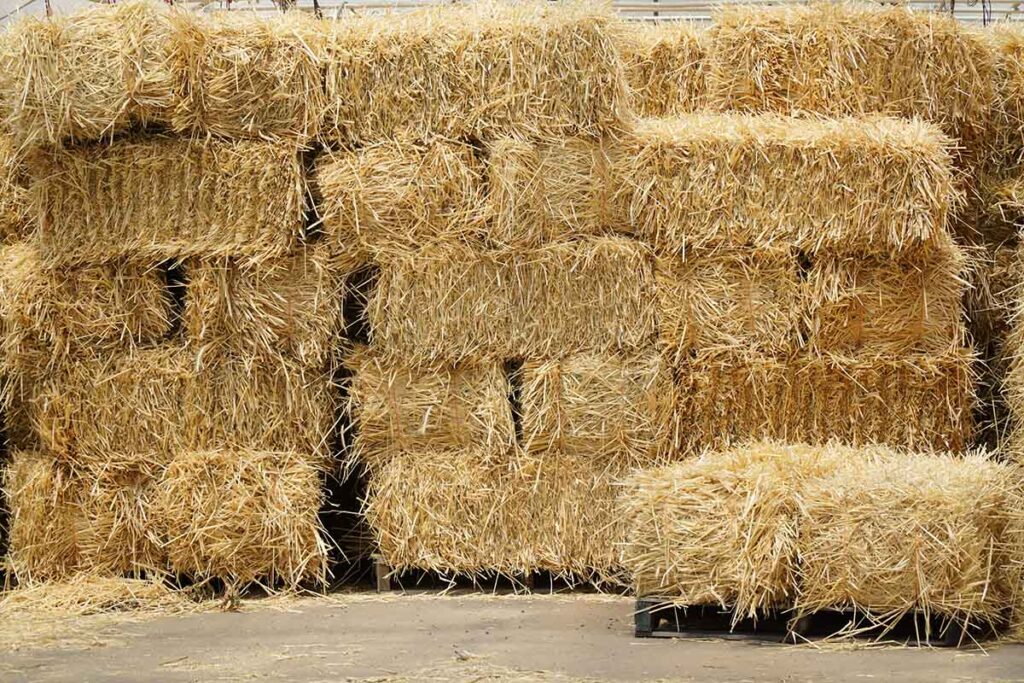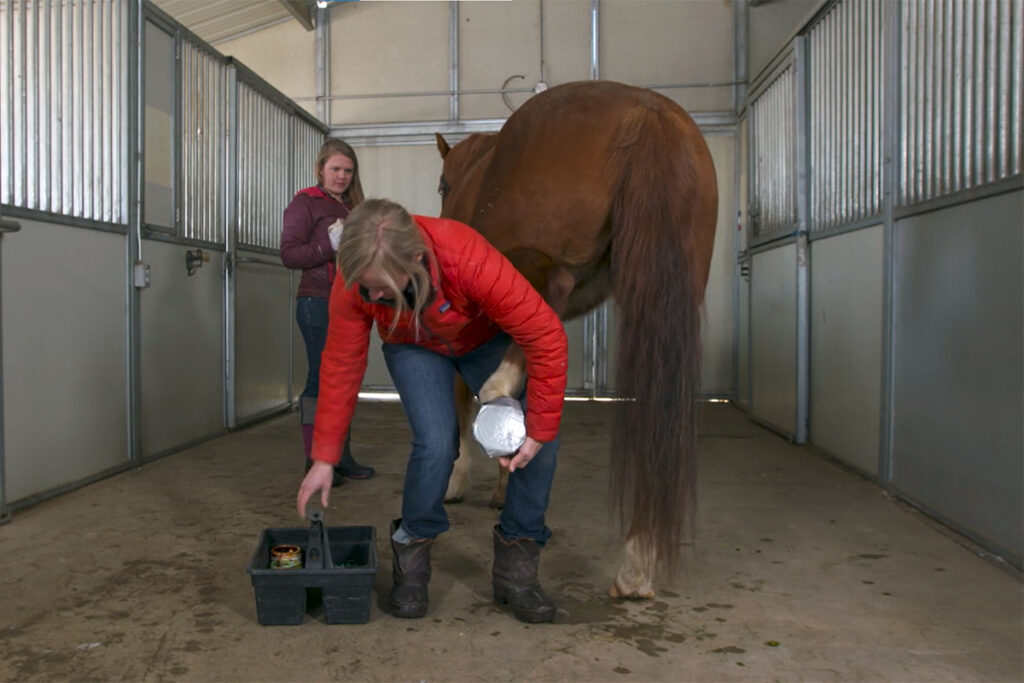Your horse pops his head over the stall door, his nostrils dripping snot. Your first reaction might be, “Gross!” followed by, “Is he sick?” Horses can have runny noses for a variety of reasons, from simple allergies to serious respiratory problems. So while it might seem like a minor issue, you don’t want to leave a runny nose untreated. In this article, we’ll discuss the steps you should take if your horse has a runny nose and what might be causing it.
Step 1: Isolate the Horse.
Contagious diseases, such as strangles and equine herpesvirus, can be transmitted through nasal fluids. Move the horse with the runny nose as far from the others as possible. After handling him, avoid contact with the rest of the herd until you’ve showered, changed your clothes, and scrubbed your shoes.
Have a helper remove the horse’s water and feed bucket from the barn. Germs can linger on these surfaces and infect other horses. Later, you’ll want to cleanse the horse’s stall and any equipment used on him with disinfectant solution.
Step 2: Check the Rest of the Herd.
Have someone who has not been exposed to the sniffling horse take the temperatures of all the others on the farm. Tell the veterinarian about any horses with a temperature above 101.5 degrees Fahrenheit (normal is between 99 and 100 degrees F).
Step 3: Observe the Horse’s Respiratory Rate.
Some diseases that cause nasal discharge can also make it difficult for the horse to breathe. Count how many breaths your horse takes per minute: A normal rate is 12 to 15 breaths. If the horse’s nostrils flare or his flanks take on a “tucked up” look with each breath, he might be having respiratory difficulties.
Step 4: Check for Signs of Disease.
Strangles and other diseases usually cause enlargement of the lymph nodes under the jawline. An affected horse might also have a fever and/or cough, act lethargic, or lack appetite. Sharing this information—in addition to your horse’s recent travel and vaccination history—with your veterinarian when he or she arrives can speed up the diagnosis. Also tell your vet when you first noticed your horse’s runny nose, how long it has been going on, and its severity.
Step 5: Note the Nature of the Discharge.
The color, consistency, and odor of nasal secretions reveal important information about their source and your horse’s health. So resist the temptation to wipe all the discharge away—its characteristics might help your veterinarian make a diagnosis.
- Thin, gray, frothy snot, particularly from one nostril, is a hallmark of a guttural pouch infection.
- An infected tooth or sinus will produce foul-smelling discharge. It might be accompanied by headshaking, reluctance to eat, or other signs of discomfort.
- Pus indicates infection, such as bacterial bronchitis, rhinopneumonitis, or strangles.
- Bleeding is usually a sign of injury to the interior of the nostril. Bright red blood can also come from a severe guttural pouch bleed or burst capillaries within the lungs if the horse has recently exerted himself.
- Dark blood draining from the nose has usually collected elsewhere first, perhaps in the guttural pouches or sinuses.
- Watery discharge with no other sign of illness is usually a reaction to cold air or other airborne irritants.
Possible Causes of Your Horse’s Runny Nose

The causes of a horse’s runny nose can range from mild to severe. Here are some of the most common:
- Environmental irritants: Dust and other particles can irritate a horse’s nasal passages, leading to a runny nose.
- Equine asthma or allergies: Just like humans, horses can suffer from asthma and allergies that produce symptoms such as a runny nose.
- Viral or bacterial infection: Infections caused by viruses or bacteria (e.g., influenza, strangles, equine herpesvirus, pneumonia) can result in a runny nose.
- Fungal or bacterial infection within the guttural pouches: A horse’s guttural pouches, located near its throat, can become infected, leading to nasal discharge.
- Ethmoid hematoma: This is a benign growth in the nasal cavities or sinus that can trigger a runny nose.
- Guttural pouch empyema: This type of bacterial infection in the guttural pouches causes pus-filled discharge, often resulting in a runny nose.
- Esophageal obstruction, or “choke”: This condition occurs when something is lodged in the horse’s esophagus and can lead to a runny nose along with coughing and difficulty swallowing.
Take-Home Message
If your horse comes down with a runny nose, isolate him from other horses, observe his condition, gather vital information, and consult with your vet. Prevent future respiratory issues by vaccinating your horse against infectious diseases and keeping his living space well-ventilated. Additionally, provide your horse with fresh, clean water at all times and avoid overexposing him to dust and mold. When in doubt, always contact your veterinarian if you notice any signs of illness.
Portions of this article originally ran on EQUUS.









